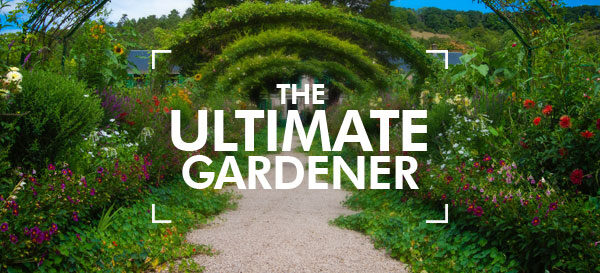© 2021 Jen Goffin / Harvest City Church
Last year I decided to try my hand at gardening—with mixed success. My garden has been neglected for too long. Apart from occasional lawn mowing and cutting back bushes I haven’t done much with it.
A garden should be a place where plants are deliberately cultivated, the opposite being a wilderness which is probably more akin to the patch of land at the back of my house currently. If you have ever been in a beautiful garden you will know how restful and relaxing they can be.
Now, you may not be green-fingered or have any desire to dig your hands into a pile of compost, but you still have a garden to tend. God, the ultimate gardener, has given us all the gift of life and we can choose what to do with it.
So if life is a garden we can tend as we choose, then how do we do so in a way that fulfils God’s purpose?
Realise that gardens are planted
They do not spring into being fully formed, but take years of careful planning and cultivation.
‘Now the LORD God had planted a garden in the east, in Eden; and there he put the man he had formed.’ (Genesis 2:8)
Notice that God did not create the Garden of Eden fully matured. He planted it. It would have taken time for the roots to take hold, the trees to grow tall. The Hebrew word used here for ‘planted’ is nâṭa which means to fasten, to establish and to fix. It implies the creation of something that is permanent. God is establishing your life and it will take time to develop. You have been designed with a purpose and how you start is not how you are intended to finish. But know that God wants to see you grow.
Gardens require water
When they are mentioned in the Bible there is always a reference to the river or spring which supplies the garden and allows it to flourish. A place without water quickly becomes a desert where very little can thrive. In the same way we need a constant filling of the Holy Spirit, God’s continuing presence beside and within us, to allow our lives to grow and produce fruit.
‘But they delight in the law of the Lord, meditating on it day and night. They are like trees planted along the riverbank, bearing fruit each season. Their leaves never wither, and they prosper in all they do.’ (Psalm 1:2-3)
Gardens need constant attention
If you clear a patch of soil, remove all the weeds and leave it for two weeks I guarantee that when you come back more weeds will be appearing. I have spent entire mornings trying to remove dandelions from my lawn, only to look outside in the afternoon and see yellow flower heads dotted all over it.
‘The LORD God took the man and put him in the Garden of Eden to work it and take care of it.’ (Genesis 2:15)
The enemy will take any opportunity to plant seeds of doubt, offence and dissatisfaction in our lives, which need to be constantly kept in check with regular weeding. The longer we allow these seedlings to grow the harder they will be to remove. We must deal with sin quickly to avoid it taking root in our hearts. One of the tips given in my gardening books for reducing weeds is to avoid leaving clear ground for them to appear. Once you have started to remove these negative things, fill the space left with better things—God’s promises for your life, His Word, in worship and prayer, spending time in His house and with His people.
‘And now, dear brothers and sisters, one final thing. Fix your thoughts on what is true, and honourable, and right, and pure, and lovely, and admirable. Think about things that are excellent and worthy of praise. Keep putting into practice all you learned and received from me—everything you heard from me and saw me doing. Then the God of peace will be with you.’ (Philippians 4:8-9)
Gardens require pruning
I have a few blackberry bushes at the end of my lawn which grow voraciously every spring. Without regular pruning they would take over my entire garden. However for a few months in summer they put their energy into producing blackberries so I get to stop pruning and spend some time harvesting (and eating) instead. We go through different seasons in life. It can feel like a never-ending cycle of painful pruning, but God is working on producing a harvest and you can only harvest in the right season.
‘There is a time for everything, and a season for every activity under the heavens: a time to be born and a time to die, a time to plant and a time to uproot.’ (Ecclesiastes 3:1-2)
Gardens produce fruit
The fruit the garden produces depends on what is allowed to grow. There is a garden in Alnwick, Northumberland, called The Poison Garden. It is a small garden completely devoted to growing around a hundred toxic, intoxicating or narcotic plants. Unsurprisingly, you aren’t allowed to smell, touch or taste anything when you walk through but people have been known to faint from just inhaling the fumes. It is possible to waste time in our lives cultivating the wrong type of plants. Sometimes they are just pointless, sometimes they are very dangerous. It may be an activity that eats away time so that other more important things are neglected. It may be a wrong relationship which distracts you from the plan God has for you. The fruit God desires to see in us is not just material wealth or career achievements, not our popularity or experiences, things the world would value highly.
‘But the fruit of the Spirit is love, joy, peace, forbearance, kindness, goodness, faithfulness, gentleness and self-control. Against such things there is no law.’ (Galatians 5:22-23)
The Holy Spirit working in us should produce love, joy, peace, patience, kindness, goodness, faithfulness, gentleness and self-control; a list we may have learnt by rote in Junior Church, but do we actively look for opportunities to let the Spirit work? Do we spend time with people who will build us up and encourage our relationship with God? Do we regularly seek Him through prayer and His Word? Do we make church a priority? We can never produce fruit in our lives unless we are remaining, abiding and dwelling with God.
‘Remain in me, and I will remain in you. For a branch cannot produce fruit if it is severed from the vine, and you cannot be fruitful unless you remain in me.’ (John 15:4)
I have hope for the patch of land behind my house, that eventually my imperfect gardening skills will create something more beautiful, year by year.
We can have even greater hope that the Lord of all creation, the perfect gardener, will help our lives to become the beautiful and fruitful gardens that He always intended them to be.












